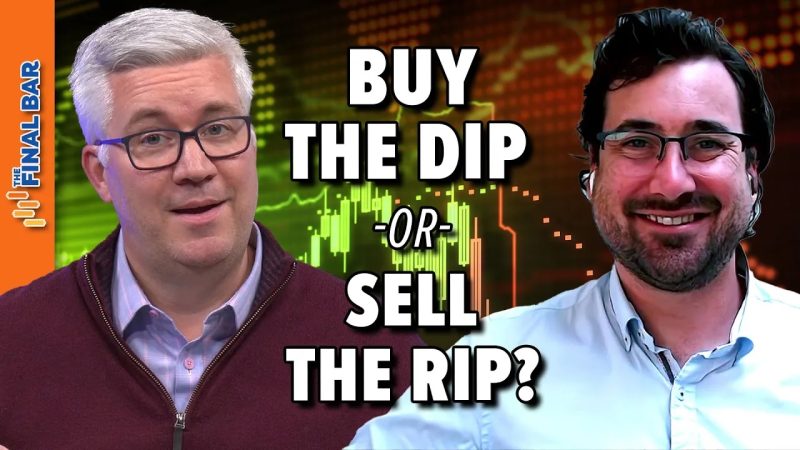In the fast-paced world of stock trading, the mantra buy the dip or sell the rip is often heard among traders as they make decisions on when to enter or exit a position. The concept is based on the idea of buying stocks when they have decreased in price (dip) or selling when they have increased (rip). However, the question of whether to buy the dip or sell the rip is one that requires careful consideration and analysis.
When considering whether to buy the dip, investors are looking for opportunities to purchase a stock at a discounted price. This strategy is based on the belief that the stock will recover and increase in value over time, allowing the investor to profit from the price difference. Buying the dip can be a profitable strategy if the investor believes in the long-term potential of the stock and is willing to hold onto it through temporary fluctuations in price.
On the other hand, selling the rip involves capturing profits by selling a stock when it has reached a peak in price. This strategy allows investors to lock in gains and avoid potential losses if the stock’s price starts to decline. Selling the rip can be a smart move for investors who are looking to take profits and reallocate their funds to other investments or simply reduce their exposure to risk.
The decision of whether to buy the dip or sell the rip ultimately depends on individual investment goals, risk tolerance, and market conditions. It’s important for investors to conduct thorough research and analysis before making any trading decisions. Factors such as company fundamentals, market trends, and economic indicators should all be taken into consideration when determining the best course of action.
In conclusion, the buy the dip or sell the rip strategy can be a valuable tool for investors looking to capitalize on market fluctuations. By carefully evaluating market conditions and staying informed about the stocks in their portfolio, investors can make informed decisions on when to buy or sell. Ultimately, successful trading requires patience, strategy, and a willingness to adapt to changing market conditions.
